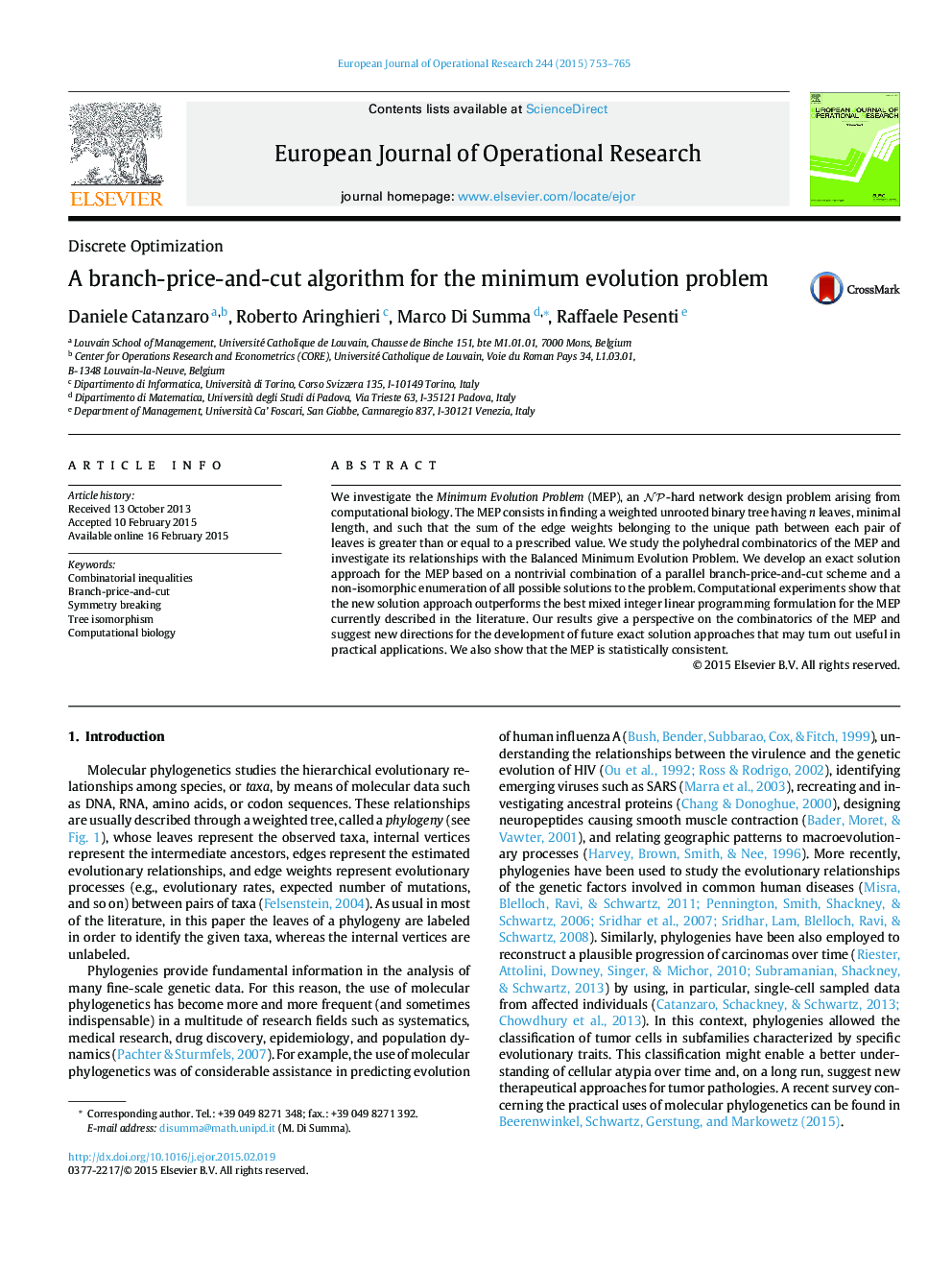| Article ID | Journal | Published Year | Pages | File Type |
|---|---|---|---|---|
| 479576 | European Journal of Operational Research | 2015 | 13 Pages |
•We study the Minimum Evolution problem (MEP), which arises in Computational Biology.•We study the polyhedral combinatorics of the MEP.•We present an exact solution approach for the MEP.•We study relationships between the MEP and the Balanced Minimum Evolution Problem.•We show the statistical consistency of the MEP.
We investigate the Minimum Evolution Problem (MEP), an NPNP-hard network design problem arising from computational biology. The MEP consists in finding a weighted unrooted binary tree having n leaves, minimal length, and such that the sum of the edge weights belonging to the unique path between each pair of leaves is greater than or equal to a prescribed value. We study the polyhedral combinatorics of the MEP and investigate its relationships with the Balanced Minimum Evolution Problem. We develop an exact solution approach for the MEP based on a nontrivial combination of a parallel branch-price-and-cut scheme and a non-isomorphic enumeration of all possible solutions to the problem. Computational experiments show that the new solution approach outperforms the best mixed integer linear programming formulation for the MEP currently described in the literature. Our results give a perspective on the combinatorics of the MEP and suggest new directions for the development of future exact solution approaches that may turn out useful in practical applications. We also show that the MEP is statistically consistent.
